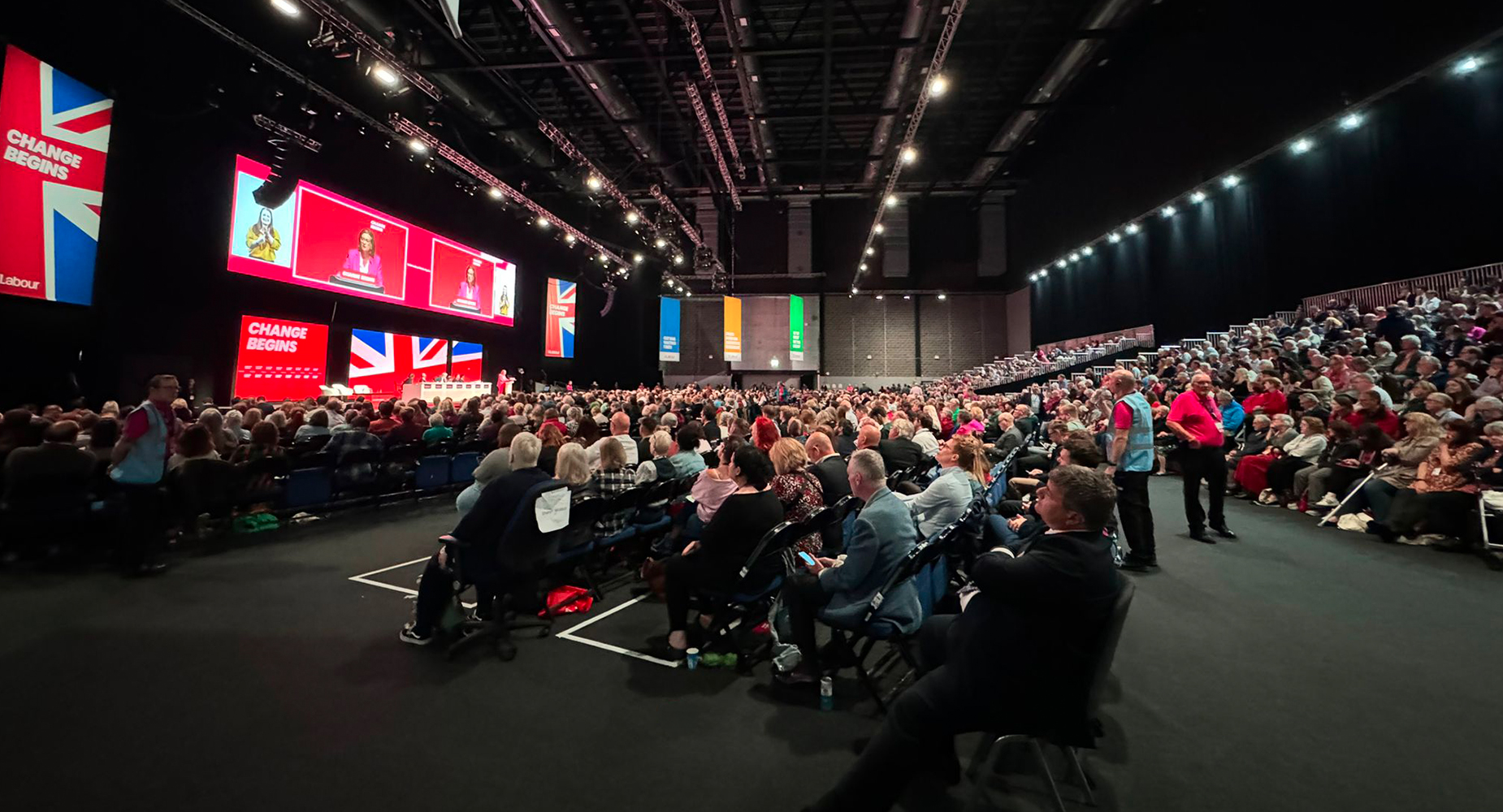The Pagefield team has just returned from Liverpool and the first annual Conference in 15 years where the Labour Party finds itself in power.
Here are their key takeaways:
The Labour Party returned to Liverpool this year for its first Annual Conference – their first in Government since 2009. For those who still remember the bleak affair these gatherings had become between 2015 and 2019, the transformation was remarkable. Relentless downpours did little to dampen the spirits of the newly-elected MPs and seasoned party activists – scurrying from hotel lobby to conference hall while thousands of confused-looking public affairs professionals desperately tried to make sense of the map function in the Party’s purpose-built app.
As something of a conference veteran, we’ve experienced most of what these 5-day political marathons have to offer. Early morning panel events and late-night karaoke; private roundtables and public disagreement on the conference hall floor. But this year’s gathering in Liverpool promised something entirely alien: the backdrop of a Labour Government.
The conference was buzzing with MPs and delegates following Labour’s victory earlier this year as the party reiterated its commitment to “rebuild Britain” and celebrated its achievements so far. It was, unsurprisingly, the most subscribed annual conference in the Labour Party’s history.
While there was a lot to be positive about, the conference took place against a gloomy backdrop, not least torrential rain on the second day. There are acute challenges ahead, and Labour did not shy away from focusing on these, alongside the party’s broader messages of hope and change.
Sir Keir Starmer’s speech was his chance to rally support among party members and reiterate Labour’s commitment to delivering real change for voters. Starmer reminded us of Labour’s vision and legislative agenda, ranging from addressing veterans’ housing needs and tackling knife crime. At the same time, Starmer continued with the rhetoric that the Government is taking the hardest decisions now, as he laid the groundwork for potential tax rises in the Autumn Budget.
However, the party faced – and continues to face – scrutiny over Ministers’ acceptance of gifts and donations amidst ‘Frockgate’, which further dampened the mood and meant that the key messages Labour wanted to land did not resonate with members and the electorate as best as they had hoped.
Despite battling away criticisms, it was clear the new intake of Labour MPs – 412 in total – are eager to get stuck in. More than half of the MPs elected in July are completely new to the job, and several Labour backbenchers leveraged the opportunity at conference to make a name for themselves in specific areas where they hope to lead the charge.
Much of the party’s frontbench team, however, were noticeably hesitant about opening themselves up to a grilling – and potential criticism – from conference delegates. Those that were involved in open discussions about Labour’s mission-driven agenda stuck to message or remained non-committal when questioned about government plans.
With the Government’s first Budget next month, and a lot of policy work in development behind the scenes, Ministers were inevitably restricted from revealing too much during conference. One business leader went so far as to say “They’ve [Labour] not taken the reins and set out the story they want to tell, so other people are doing it for them. They need to be clear, set out their stall and take us with them.”
Despite now being in power, Labour’s annual conference struggled to embody the celebratory mood expected now that it is back in office. Last year’s conference was marked by optimism, with soon-to-be MPs confident that victory was within reach. However, the reality of governing has since tempered that mood, with this year’s conference ending on a vote which Labour lost to reverse cuts to winter fuel payments, further tainting the party’s leadership.
All eyes will be on the coming months to see whether Labour can encourage voters to stick with them, or whether the electorate will become disillusioned with a new government that cannot fulfil the promises that got it into power in the first place.
Written by Eve Frayling, Luke Francis and Rebecca Lury



